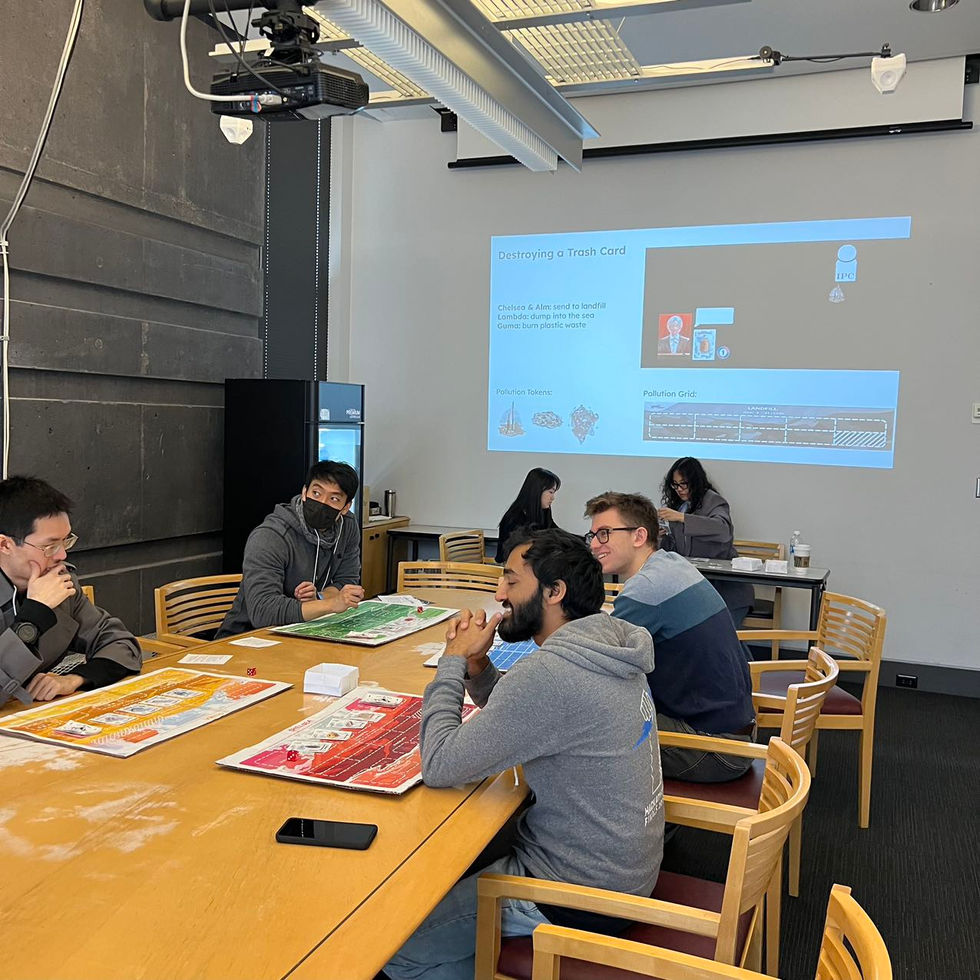
Create Your First Project
Start adding your projects to your portfolio. Click on "Manage Projects" to get started
UNsolved
Project Type
Large-scale multiplayer board game
Date
Jan 2024 - May 2024
Role
Game Designer
Link
Location
CMU ETC with Games for Change Conference
Design Choice
This game is specifically designed for attendees at the Games for Change Conference. Thus, the following elements determine the gameplay.
1. Flexibility on the number of players. Expected from 8 - 64 players.
2. Replayable is not considered, because it is more like a one-time workshop game.
3. One of the 17 UN Sustainable Development Goals must be reflected directly, from an international level(Not specific to one or few countries).
To support United Nation’s Sustainable Development Goals at the 2024 Games for Change Festival, we designed a board game with mechanics mirroring the reality of plastic waste management and the broken recycle system around the world.
Unsolved: The Recycle Board Game is a strategic journey played over 2 rounds of free trades and discussion periods, with a combination of strategic planning, negotiation, and decision-making as players aim to minimize their plastic waste while maximizing economic gains.
Four imaginary nations: Alm, Chelsea, Lambda, and Guma, are at the heart of the global recycling dilemma. The differences in economy and trash production among these nations of varying development statuses play a crucial role in their efforts to maximize recycling for economic needs and dispose of excess waste. As representatives of your nation, your task is daunting yet crucial: navigate the complexities of recycling to mitigate the environmental catastrophe while getting rid of your plastic waste.
During discussion periods, players could spend their national budget to process their 4 different types of plastic cards inside the country through:
– building and running processing facility
– or burdening the environment (landfill, dumping into the sea, or burning)
During the free trade periods, players can negotiate trading prices to pay and send their plastic waste cards to another nation. Ultimately, players could also take other nations’ plastic waste if they see economic benefits.















